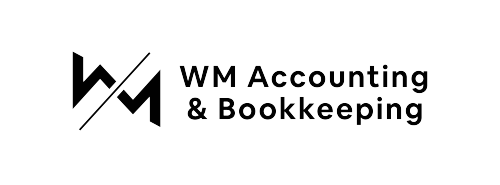Bookkeeping, at its core, is the systematic recording of financial transactions in a business. It provides a crystal-clear snapshot of where the money comes from and where it goes, offering Manassas small business owners a vital tool in managing their enterprises effectively. Unlike larger conglomerates with extensive accounting departments, small businesses often juggle multiple roles, and efficient bookkeeping stands as an indispensable ally to maintain financial health and compliance. In the historical heartbeat of Virginia, Manassas’s small businesses ranging from charming antique shops to innovative tech startups, each transaction recorded is not just a number; it’s a brushstroke on the canvas of the local economy’s vibrant portrait.

As we delve deeper into the essentials of bookkeeping for these small businesses, it is pivotal to recognize the unique challenges they face—from limited resources to the necessity of wearing multiple hats. Anticipation builds as we prepare to uncover key takeaways in the subsequent sections, examining the nuts and bolts of bookkeeping practices that contribute to the stability and growth of small businesses. Stepping beyond the basics, we are gearing up to explore how local Manassas business owners can leverage bookkeeping not merely for tracking expenses and incomes but as a strategic tool for forecasting, analyzing trends, and making informed business decisions that could pave the way to their financial triumph.
Are you a small business in Manassas, Note down these bookkeeping basics:
1. Accounting Principles
- Double-Entry Bookkeeping: For every transaction, two entries are made: a debit in one account and a credit in another. This system ensures the accounting equation (Assets = Liabilities + Equity) remains balanced.
- Accrual vs. Cash Accounting: Decide whether to record transactions when they occur (accrual basis) or when cash changes hands (cash basis). Small businesses may start with cash basis accounting for simplicity, but accrual accounting provides a more accurate financial picture.
2. Records Keeping
- Document Everything: Keep detailed records of all business transactions, including invoices, receipts, payroll records, and bank statements. These documents are essential for accurate bookkeeping and are required for tax purposes.
- Organize Financial Information: Use a filing system that allows you to easily access and review financial documents. Consider using bookkeeping software to digitize and automate record-keeping.
3. Account management
- Accounts Receivable: Track money owed to your business by customers. Prompt invoicing and follow-up on outstanding payments are crucial for maintaining cash flow.
- Accounts Payable: Keep track of money your business owes to suppliers and vendors. Timely payments can help build strong relationships and may qualify you for discounts.
- Inventory Management: Regularly monitor inventory levels to prevent stockouts and overstocking. Accurate inventory tracking also affects cost of goods sold and profitability.
4. Business Taxes
- Know Your Tax Obligations: Familiarize yourself with local (Manassas), state (Virginia), and federal tax requirements. This includes income tax, sales tax, and employment taxes.
- Set Aside Money for Taxes: Allocate a portion of your earnings to cover tax obligations. Consider opening a separate bank account for tax reserves.
5. Bookkeeping Softwares
- Invest in bookkeeping software tailored to small businesses. Look for features like invoice creation, expense tracking, financial reporting, and tax preparation support. Popular options include QuickBooks, Xero, and FreshBooks.
6. Reconcile Bank Statements
- Regularly compare your bookkeeping records to your bank statements to ensure accuracy. This process, known as reconciliation, can help catch errors or unauthorized transactions.
7. Plan for Growth and Challenges
- Financial Planning: Use your bookkeeping data to create budgets and financial projections. This can help you plan for future growth, manage cash flow, and prepare for financial challenges.
- Seek Professional Advice: Consider consulting with a CPA (Certified Public Accountant) or a professional bookkeeper, especially for complex financial matters or tax planning.
8. Stay Informed and Compliant
- Legal Requirements: Stay updated on any changes in tax laws or financial regulations that affect your business. Compliance is crucial to avoid penalties and legal issues.
- Continuous Learning: Bookkeeping practices and software tools evolve. Keep learning to improve your financial management skills and make the most of new technologies.
What Are the Fundamental Bookkeeping Practices for Small Businesses in Manassas?
Effective bookkeeping for small businesses in Manassas involves tracking all financial transactions, categorizing expenses and revenues, maintaining accurate and up-to-date records, and ensuring compliance with federal and state tax laws. Employing reliable software solutions, reconciling bank statements monthly, and preparing financial statements quarterly are also crucial to maintaining a clear view of the business’s financial health.
Chart of Accounts: The Bedrock of Bookkeeping
Setting up a chart of accounts is a critical first step in bookkeeping. This organizational tool segregates transactions into different accounts, making it easier to manage finances and prepare financial statements. Businesses should customize their chart of accounts to reflect distinct income streams, expense categories, assets, liabilities, and equity accounts relevant to their operations in Manassas.
Recording Transactions: The Daily Discipline
Diligently recording all business transactions forms the core activity of bookkeeping. This includes all sales, purchases, receipts, and payments by an individual or organization. Utilizing bookkeeping software can aid in streamlining this process, and keeping digital or physical receipts is essential for supporting documentation come audit time.
Accounts Receivable and Payable: Monitoring Cash Flow
Managing accounts receivable and payable is crucial for maintaining smooth cash flow. Regularly invoicing clients, tracking when payments are due, and following up on late payments will help Manassas small businesses stay financially stable. Similarly, keeping track of money owed to vendors, and planning for payments, is just as important for building and maintaining good relationships with suppliers.
Payroll Processing: Looking After Your Team
Accurate payroll processing is a non-negotiable aspect of bookkeeping. It ensures that employees are paid correctly and on time, and that all withholding taxes are calculated and remitted appropriately. Small businesses in Manassas must stay up-to-date with Virginia’s labor laws to manage employee compensations compliantly.
Reconciliation: Ensuring Accuracy in Records
Reconciliation is the process of comparing internal financial records against bank statements to verify accuracy. It’s a fundamental bookkeeping task that helps discover any discrepancies and prevent potential fraud. Carrying out reconciliations monthly keeps financial data precise and reliable.
Financial Reporting: The Window into Business Performance
Preparing financial reports is a vital exercise for assessing a business’s financial health and making informed decisions. Key reports include the income statement, balance sheet, and cash flow statement. Reports should be generated regularly – at least quarterly – to give a clear and current snapshot of business performance.
Tax Compliance: Staying in Good Standing
Navigating tax laws is an important element of bookkeeping. Small businesses in Manassas must ensure adherence to both federal and Virginian tax requirements to avoid penalties. This includes accurate calculation of sales tax, payroll tax, and income tax obligations and timely submission of all related filings.
Choosing the Right Software: Enhancing Bookkeeping Efficiency
Selecting the appropriate bookkeeping software can enormously simplify the bookkeeping process. Look for software that caters to the specific needs of your business, provides scalability, and can integrate with other tools like CRM or inventory management systems. Options like QuickBooks or Xero are popular among small businesses for their user-friendly interfaces and robust features.
Professional Assistance: When to Seek Help
While in-house bookkeeping may be feasible for some small businesses, others may benefit from professional accounting services. This can range from hiring a part-time bookkeeper to utilizing a full-service accounting firm. Knowing when to seek external help can save time, ensure accuracy, and provide peace of mind.
Are There Any Specific Bookkeeping Tips for Manassas Small Business Owners?
- Implement a regular bookkeeping schedule to avoid backlogs and keep financial data up-to-date.
- Understand local tax obligations specific to Manassas and the state of Virginia and keep abreast of any changes.
- Use cloud-based bookkeeping solutions to access financial data securely from anywhere.
- Maintain a separate business bank account to simplify tracking of business income and expenses.
- Consider setting aside a regular budget for professional bookkeeping or accounting services – even if only for annual tax preparation.
- Stay organized by keeping all financial documents, such as invoices, receipts, and bank statements, well organized and readily accessible.
- Regularly review your business budget compared to actual spending to manage company finances effectively.
- Finally, don’t overlook the importance of clear financial policies within your business to guide spending and the use of resources.
Bookkeeping Basics for Manassas Small Businesses – Wrapping it up
What Is Bookkeeping and Why Is It Essential for Small Businesses in Manassas?
Bookkeeping is the process of recording and managing all financial transactions for a business, including sales, purchases, payments, and receipts. It’s essential for small businesses in Manassas because it provides accurate financial information that is critical for making informed business decisions, ensuring compliance with tax laws, and maintaining organized records for auditing purposes.
What Are the Basic Bookkeeping Tasks That Manassas Small Business Owners Should Perform?
The basic bookkeeping tasks Manassas small business owners should perform include tracking sales and expenses, maintaining receipts and invoices, reconciling bank statements, managing payroll, and preparing financial statements. These tasks help create a financial snapshot of the business, facilitating strategic planning and budgeting.
How Often Should Bookkeeping Be Done?
Bookkeeping should ideally be done regularly to ensure that financial records are up-to-date and accurate. Many small businesses in Manassas may find that weekly or monthly bookkeeping provides a good balance between staying current and not being overwhelmed by the task.
Do I Need to Hire a Professional Bookkeeper?
Whether you need to hire a professional bookkeeper depends on the complexity of your business transactions, the volume of your sales, and your own comfort level with managing finances. For many small businesses in Manassas, hiring a professional can save time and reduce the likelihood of errors.
Can I Use Bookkeeping Software to Manage My Manassas Business Finances?
Yes, many small businesses in Manassas can benefit from using bookkeeping software. These programs can automate many basic bookkeeping tasks, provide valuable financial insights, and help maintain organized records for tax purposes.
What Records Should I Keep for Effective Bookkeeping?
For effective bookkeeping, you should keep detailed records of all business transactions, including sales receipts, purchase invoices, bank statements, credit card statements, and payroll records. These documents are the backbone of your financial records.
How Does Proper Bookkeeping Affect Business Taxes?
Proper bookkeeping directly affects business taxes by providing accurate and detailed financial records, which are essential for determining taxable income and preparing tax returns. Accurate bookkeeping can also maximize tax deductions and reduce the likelihood of errors that could lead to audits or penalties.
What Are the Key Financial Statements I Should Know About?
The key financial statements you should know about are the balance sheet, income statement (profit and loss statement), and cash flow statement. These documents provide insights into your business’s financial health, showing assets, liabilities, revenues, expenses, and cash movements.
How Can I Improve My Accuracy in Bookkeeping?
To improve accuracy in bookkeeping, establish a consistent bookkeeping routine, keep all financial documents organized, regularly review your records for discrepancies, and consider using bookkeeping software or hiring a professional to assist you.
What Are the Best Practices for Small Business Bookkeeping in Manassas?
Best practices for small business bookkeeping in Manassas include keeping personal and business finances separate, staying compliant with local tax laws, regularly reviewing financial statements, keeping thorough financial records, and planning for major expenses and tax obligations in advance.
Final Thoughts on Bookkeeping Basics for Manassas Small Businesses
In conclusion, understanding and implementing strong bookkeeping practices are paramount for the success of small businesses in Manassas. Bookkeeping not only helps you stay on top of your financial position but also plays a critical role in strategic planning, performance tracking, and regulatory compliance. Whether it’s through meticulous self-management, employing sophisticated software solutions, or engaging with financial experts, Manassas business owners must prioritize this area to ensure sustainable growth and financial health. Remember that good bookkeeping practices reflect directly on your business’s ability to respond to challenges and capitalize on opportunities in the competitive marketplace.
In the end, the effort put into maintaining accurate and organized financial records will invariably lead to a clearer understanding of your business’s financial trajectory. It’s worth investing the necessary resources into bookkeeping because it lays the foundation for making informed decisions that drive profitability and growth. If you’re new to bookkeeping, take it step by step, seek advice when needed, and consider the many resources available to support Manassas small businesses. With a solid approach to bookkeeping, you can focus more on what you do best – running your business.




